PRESERVING A MILITARY LEGACY FOR FUTURE GENERATIONS
The following Reflections represents 1SG Sean Haye’s legacy of his military service from 1984 to 2010. If you are a Veteran, consider preserving a record of your own military service, including your memories and photographs, on Togetherweserved.com (TWS), the leading archive of living military history. The following Service Reflections is an easy-to-complete self-interview, located on your TWS Military Service Page, which enables you to remember key people and events from your military service and the impact they made on your life. Start recording your own Military Memories HERE.
Please describe who or what influenced your decision to join the Army.

As a kid, I always liked the military. As a young kid, I wanted to join the Navy. When I got to high school, we had Army JROTC, and my interest changed to Army or Marines. My dad, who was in the Army, convinced me that the Army was the way to go because it was bigger and promoted faster. He was a tanker and tried to steer me to armor. I wanted to be an airborne ranger, and my dad said whatever you do, ensure you get what you want in your contract. When I went to the recruiter, I scored very high on the ASVAB. The career counselor told me that he didn’t have airborne infantry available. He said the only thing with airborne was the 31C Radio Operator, probably because of the high GT. I believed him and felt good about getting guaranteed airborne. It first took me to the 82nd, and as soon as I got there, I started applying for a Ranger assignment because I got put in the Engineer Battalion, and it wasn’t what I wanted. After a year and a half, I got my wish and orders for Ranger Indoctrination and the 2nd Ranger Battalion.
Whether you were in the service for several years or as a career, please describe the direction or path you took. What was your reason for leaving?

After arriving at 2/75 RGR, my first focus was getting ready for Ranger school and learning how to be a good Ranger RTO. I started out in HHC. After 6 months, I got a Ranger slot and made it straight through class 9-87 without recycling. After returning to the Battalion, I quickly knocked out PLDC and BNCOC and was promoted to SGT. Since I had extended my time to go to the Ranger BN, I was quickly in my reenlistment window. I reenlisted to stay in BN, and as a reward, I got a slot at HALO school. The Regimental Recon detachment was taking over the HALO mission from the BNs, but we were still getting school slots. So basically, I got a really cool rare school as a reenlistment bonus. After returning from HALO school, I finally got the job I most wanted as a Ranger, which was rifle Company commo chief and senior RTO. This is where I learned so much about being an NCO from all of the tremendous NCOs in a Ranger Line Company.
This was 1988, and the focus soon began to center on possible operations in Panama. We conducted many Battalion airborne assaults preparing for this operation. Ranger airborne operations were very different from the 82nd. Rangers are expected to form into fire teams of Rangers going to the same assembly area and fight their way off the DZ, and assembly areas aren’t marked. Every Ranger is expected to know the terrain of the DZ and bet to their assembly area based on knowledge of the mission. 82nd dropzones had giant signs on poles with numerous chem lights, making a number-letter combination for assembly aids. As an RTO, I had to hit the ground, recover my chute, assemble my radio without light, make contact with other RTOs within 15 minutes of landing, and start gathering information over the radio as I moved to the assembly area with other Rangers going in the same direction.
If you participated in any military operations, including combat, humanitarian and peacekeeping operations, please describe those which made a lasting impact on you and, if life-changing, in what way?

I participated in Just Cause Panama, Iraqi Freedom, and Enduring Freedom. My second trip to Iraq in 2006 had the most impact on me. Before going to Baghdad, I didn’t really understand the difference between Sunni and Shia Islam. In East Baghdad, it was Shia, and Iran backed the militias. While most of the troops in Iraq were battling Al Qaeda in Iraq and other pro-Saddam Sunni militias, we were engaging the Mahdi Militia of Muqtada Al Sadr and other Iranian proxies. I was in the Battalion quick reaction force of 4-320 Field Artillery, and we responded multiple times to units hit by the Iranian-made EFP anti-armor IED. For many years after Iraq, different administrations dealt with Iran with kid gloves, and I have heard so many civilians say Iran never attacked us. I saw firsthand many instances of Soldiers who were killed or severely wounded by Iranian EFPs and knew that was a lie.
Did you encounter any situation during your military service when you believed there was a possibility you might not survive? If so, please describe what happened and what was the outcome.

There were numerous incidents in my combat deployments that I felt like, but the worst is when you feel you have little control over the situation. As I mentioned in the above reflection, in east Baghdad, the Iranian-made explosively formed penetrator IEDs were very common. It was designed to be set off by an IR light that picked up the first vehicle in convoy and was able to penetrate the armor on up-armored HMMVs easily. As part of our Battalion’s QRF, we responded to numerous IED strikes, and I always rode in the first vehicle. One morning, during our security patrol around our FOB, we would drive around the surrounding neighborhoods and conduct random dismounted patrols. One of the routes we took had a new construction neighborhood with a dirt trail that would come out on another main road. One morning, driving down the road, the driver asked me if he should take the dirt road or go to the intersection.
I said whichever you want, and at the last second, he hooked a turn down the dirt road. We finished the patrol and drove back on the FOB fifteen minutes later. As soon as we parked the trucks right on the other side of the wall, there was a massive explosion with the characteristic plastic explosive detonation of an EFP. We went right back out to assist the Unit hit by the EFP. They had hit it right where we would have been if we had went to the intersection instead of taking the dirt road. In that convoy, the guy who was in the same truck and seat position as me was KIA with a direct hit to his head. The EFPs were actually designed to target specific areas of the vehicle, including both doors and the gunner, and were surprisingly accurate. If we had taken the other turn, I would have been exactly in that position. From then on, driving the roads around there gave me the feeling of riding a roller coaster of doom. Just like a roller coaster, once the ride starts, you get what you got until the ride stops, and you feel completely out of control of the situation.
Of all your duty stations or assignments, which one do you have fondest memories of and why? Which was your least favorite?

My favorite duty assignment was in Okinawa, Japan. It was an incredible opportunity to see and live in another culture, and being assigned in a supporting role to a Special Forces unit also provided an opportunity to go on many exercises all throughout Asia. The exercises were usually done with a small group, and everybody was treated like an adult.
I also like Fort Campbell. I got there in 2004, and the post did a great job of organizing the ranges so that each Infantry Brigade had its own set of ranges, so securing training areas was easy, and resources to train and prepare for deployment were plentiful and well organized. I think Clarksville is one of the friendliest military towns I have seen.
The worst place for me to be stationed was Hunter Army Airfield. I am a northerner by birth, and the heat and humidity are very oppressive. Plus the fact that all of the ranges are on FT Stewart, an hour away from Hunter, so every single training event, no matter how small, was full of difficulties.
From your entire military service, describe any memories you still reflect back on to this day.
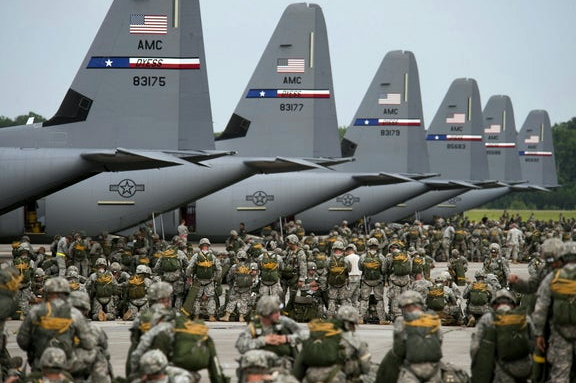
I reflect back mostly on the airborne operations in the Ranger Battalions. There was so much involved in getting ready for the operation, and once the jump was complete, trying to be the first to the assembly area and then focusing on the follow-up mission gave me a true sense of accomplishment. No other activity, mission, or training event seemed to be both as exciting and give such a feeling of accomplishment. It is nothing I could experience in civilian life. Skydiving wouldn’t compare because there is no follow-on purpose to what you are doing after skydiving.
What professional achievements are you most proud of from your military career?
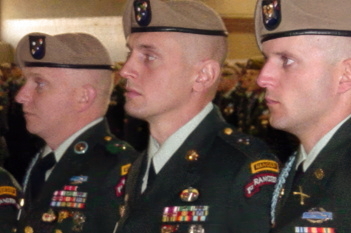
I am very happy to have had the opportunity to serve in all three Battalions of the 75th Ranger Regiment. Getting to all three was just luck that the Battalion was open at the time, but passing the requirement to get in was an achievement. The first time as a Private or Specialist, you go through the Ranger Indoctrination Program, which is pretty much just a three-week smokefest to get rid of the week. Coming back to the Regiment as an NCO or Officer, you go through the Ranger Orientation Program. For ROP, you have to pass all the Ranger physical requirements, 80% on APFT, a 12-mile road march in 3 hours, and a swim test. In addition, your leadership qualities are tested, and you go before an interview board with NCOs and Officers of the Regiment, asking you questions and giving you scenarios to ask how you would do something. The Regiment has many people who stay there for years and years, so every time you come back, it is sort of a reunion, but you still have to prove you have the right to come back.
Of all the medals, awards, formal presentations and qualification badges you received, or other memorabilia, which one is the most meaningful to you and why?
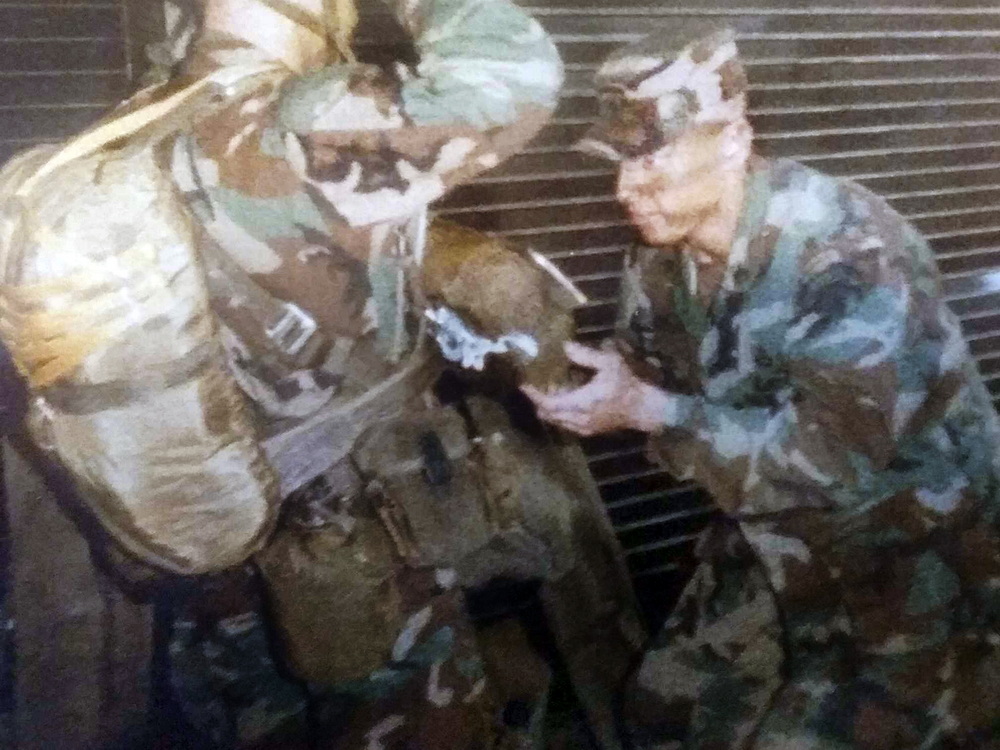
I would say my master parachutist badge because most awards are about a single event. The master parachutist badge is about having served for years on jump status, graduating from jump master school, and then putting what you learned into application by overseeing the safety of fellow Paratroopers and being a leader in airborne operations. On top of that, earning master wings in the Ranger Regiment is also quite a memory since the Ranger Regiment rarely does “Hollywood” or “fun jumps.” Every time aircraft are available, it is a training opportunity, and some sort of mission is done in conjunction.
Which individual(s) from your time in the military stand out as having the most positive impact on you and why?
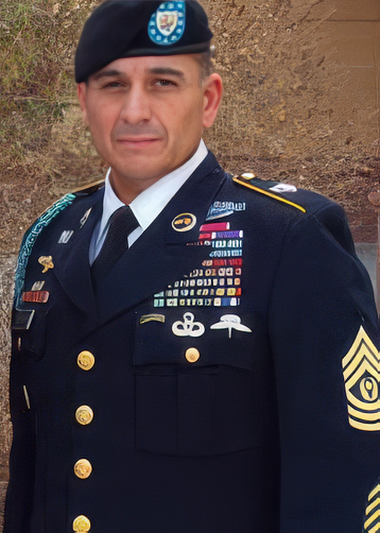
I would have to say CSM Barreras (fallen), CSM Hardy, CSM Greca, and CSM Joseph Goodwater. All were my 1SG, and all were extremely professional. When I knew I was going to get a 1SG position, I seriously reflected on the bad and good 1SGs I have had and tried to approach the position from what I saw these great NCOs do. Greca and Goodwater especially stood out as both extremely professional, maintaining high standards and showing genuine concern for the Soldier, the Unit’s mission, and trying every day to make the Army better.
CSM Martin Barreras was the best Soldier I have ever met. He initially was a Marine and was in Beirut during the barracks bombing. I first met him in 2nd Ranger BN, and we were in B CO together, including Operation Just Cause. I met him again in 1st Ranger BN years later, where he was the B Co 1SG for OIF I and the HHC 1SG in OEF. After I left 1/75, I heard he did some work as a Special Operations advisor to the Pakistanis. Unfortunately, he was killed in action as a CSM in the 1st Armored in Afghanistan in 2014. The man served his country in countless combat operations for over 30 years and made the ultimate sacrifice well past the point of retirement eligibility. God rest his soul.
List the names of old friends you served with, at which locations, and recount what you remember most about them. Indicate those you are already in touch with and those you would like to make contact with.
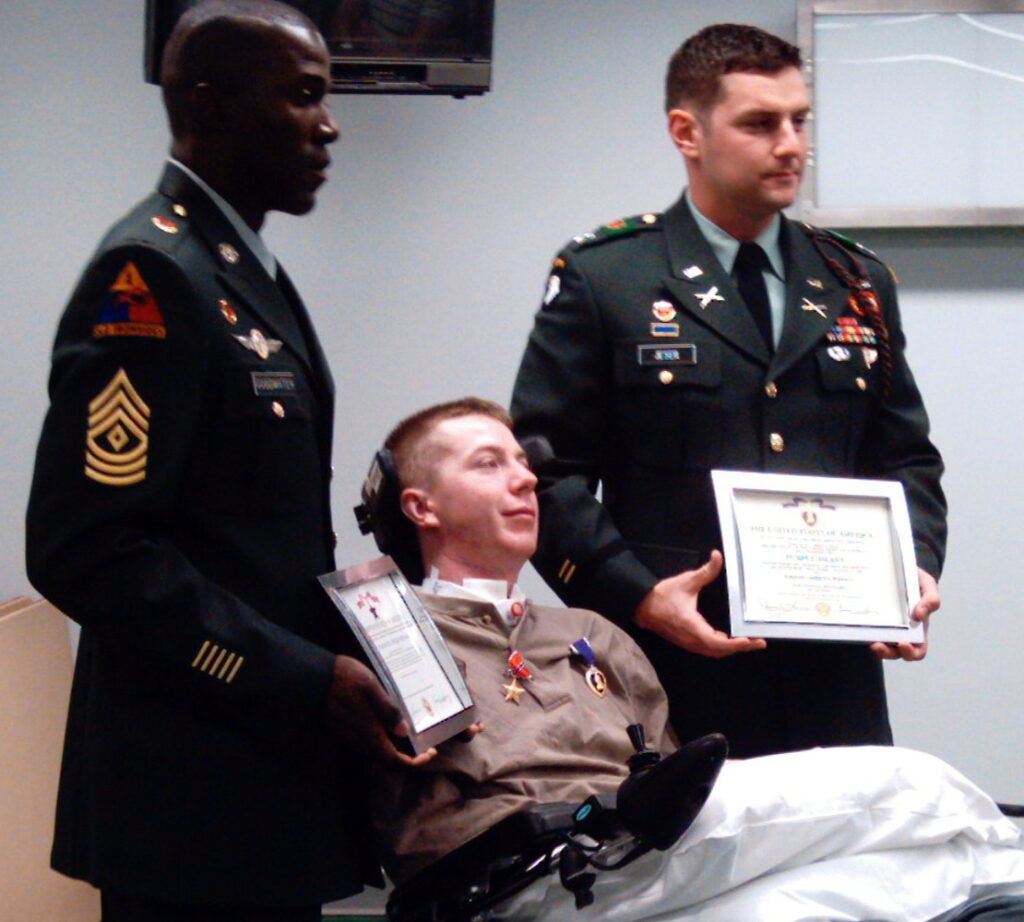
SGM Dave Blue, SPC Frank Brown, SGT Marty Proctor, SFC Christopher Leach, SGT John Murphy, CSM Calpena, LTG Joseph Anderson, COL Michael Kershaw, LTG Michael Ferriter, CSM Frank James, SPC Villalobos, SGT Angeles, SFC Fultz, CSM Risley, 1LT Jesser, SSG Arthur Woods, SGT Law, SFC Cuellar, CW3 Morris, CPT Holdaway, SSG Glenn, CW3 Hooper. So many more, but my memory fails.
Can you recount a particular incident from your service, which may or may not have been funny at the time, but still makes you laugh?
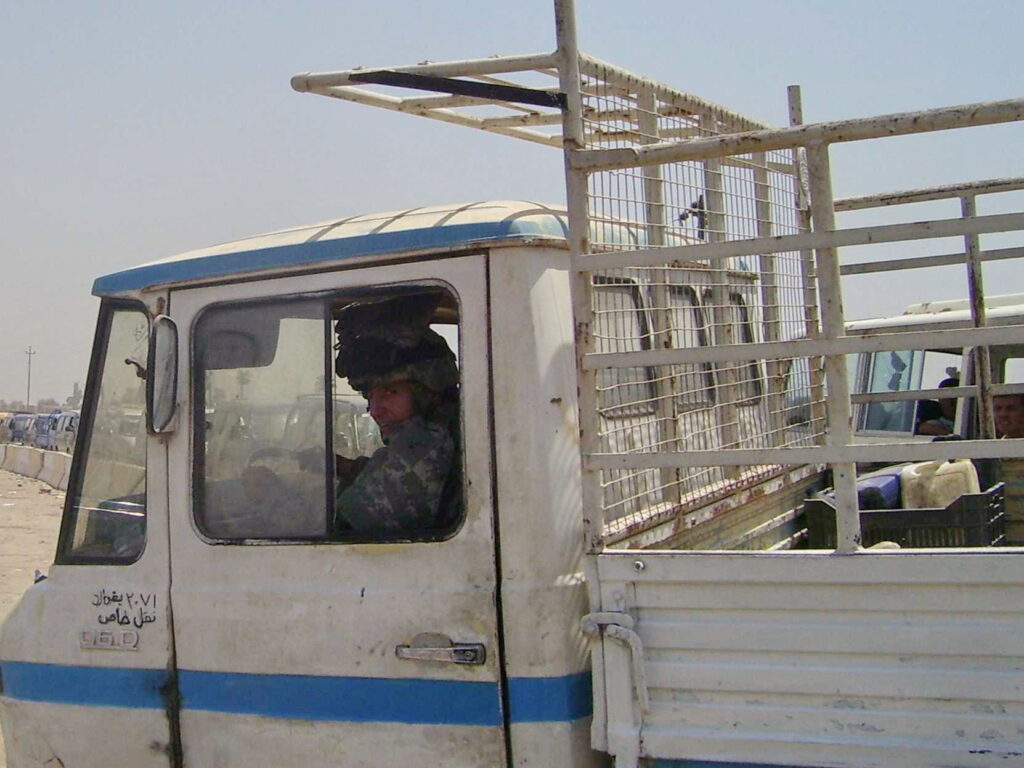
In Iraq, we had a daily Battle Update Brief or BUB where the last 24 and plans for the next 24 were briefed, as well as an intel brief from S2. Sometimes they were monotonous but I always paid attention to the intel brief. One day, they told us that the militias were buying up huge amounts of gas from the gas stations by taking buses and installing huge tanks in them and, cutting the legs off the seats and putting them on top of the tanks to make them look like a regular bus from the outside. They would have a garden hose spicket on the outside to drain them into gas cans, and they would get kids to sell the gas black market on the streets at a marked-up price. There were only a few gas stations in the city, and the lines went on for over a mile. People camped out in line to get gas, so they were willing to pay for marked-up gas on the side of the road.
A few days later, we got called to go down to one of the gas stations to talk to the owner about getting pressured by the militia. The LT went inside to speak to the owner, and we pulled security around the gas station. It took a while, so I decided to look around the gas line. Lo and behold, I found several buses and trucks set up exactly as the intel brief said, and the drivers left them when we showed up. So I showed the LT, we called it in, and BN said to seize the trucks and busses.
So we started moving them across the road to a field where the maintenance Company could come get them with wreckers. The Iraqis were extremely happy because they knew the gas station tanks would have been emptied by those trucks; they would be waiting for days for nothing and would have to buy the gas marked up. So we were heroes for a day. All the kids were jumping around, cheering us as we drove these old, beat-up Sanford and Son vehicles away. It was nice to get cheered on by people who usually gave us dirty looks, and the atmosphere was quite happy.
What profession did you follow after your military service and what are you doing now? if you are currently serving, what is your present occupational specialty?
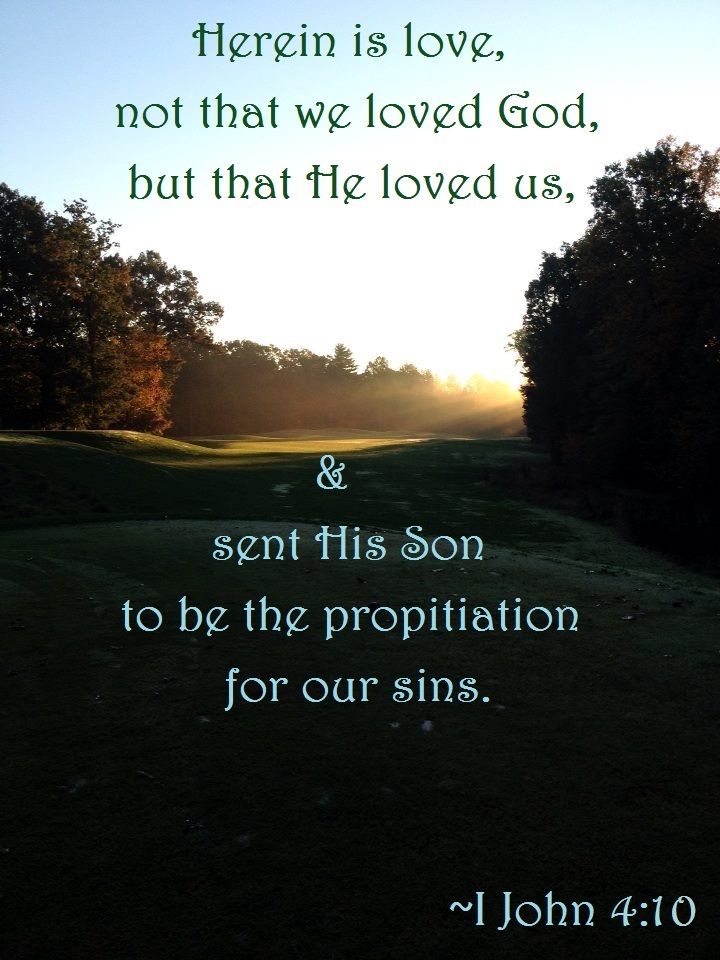
I am currently starting up a fruit orchard, caring for goats, and learning the lost old art of growing and preserving food.
Most importantly, I am doing my best to serve my Lord and Savior, Jesus Christ. I was not raised a Christian; I was quite the drunk as a young Soldier, but God saved me from myself when I was quite unlikable.
1 John 4:10 herein is love, not that we loved God, but God loved us and sent His Son to propitiate our sin.
In what ways has serving in the military influenced the way you have approached your life and your career? What do you miss most about your time in the service?
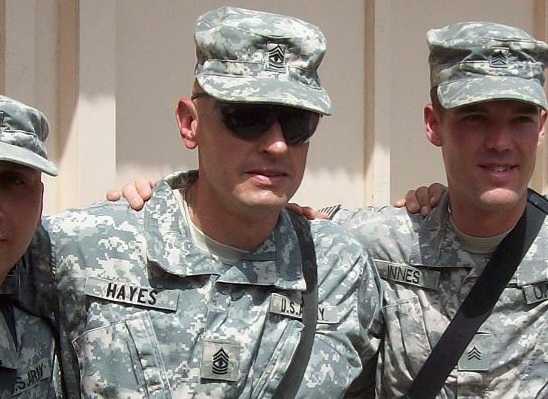
The military gave me a strong work ethic to always strive to exceed any standard and accomplish whatever I try. Also, by advancing up the NCO ladder of responsibilities, I learned to put others’ needs above my own and care about the whole person whenever I have anyone working for me.
Based on your own experiences, what advice would you give to those who have recently joined the Army?
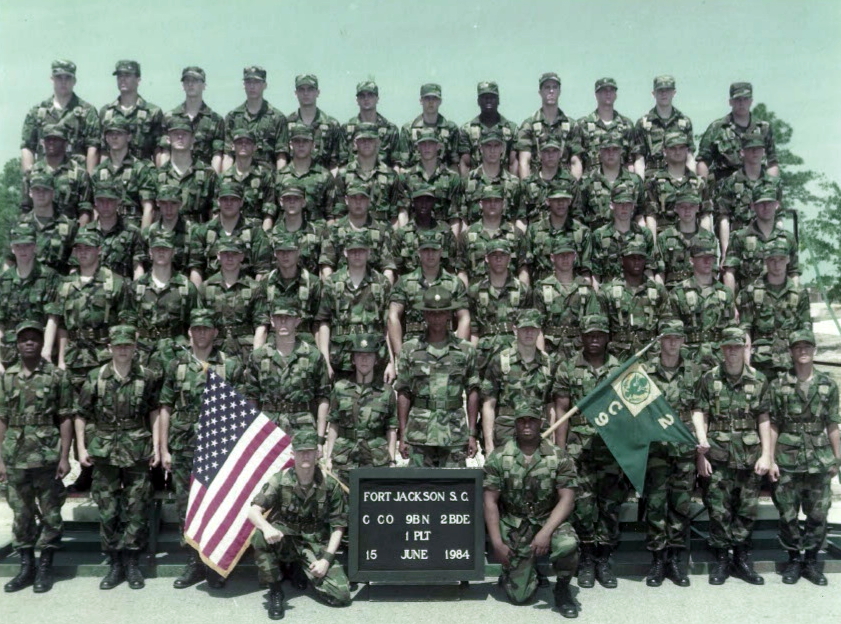
Firstly, I would recommend that whatever your MOS, try to get an assignment somewhere in the special operations community. One, you are treated like an adult most of the time, and training experiences are more realistic.
Two, you will probably have access to more schools than in a regular Army unit.
Third, you will work for professional and dedicated leaders who will teach you tactically, technically, and leadership-wise, which will benefit you wherever you go in the military.
Secondly, everybody wants to get promoted, but keep in mind that the most enjoyment I found out of the service was actually doing my job. Once you rise above SSG, you will spend a lot of time talking about work in meetings instead of working with other Soldiers and the tools of your career path. I thought SSG was the most fulfilling rank. Have enough rank to be respected above and below and not yet have to spend most of your time in meetings and mandatory functions.
In what ways has togetherweserved.com helped you remember your military service and the friends you served with.
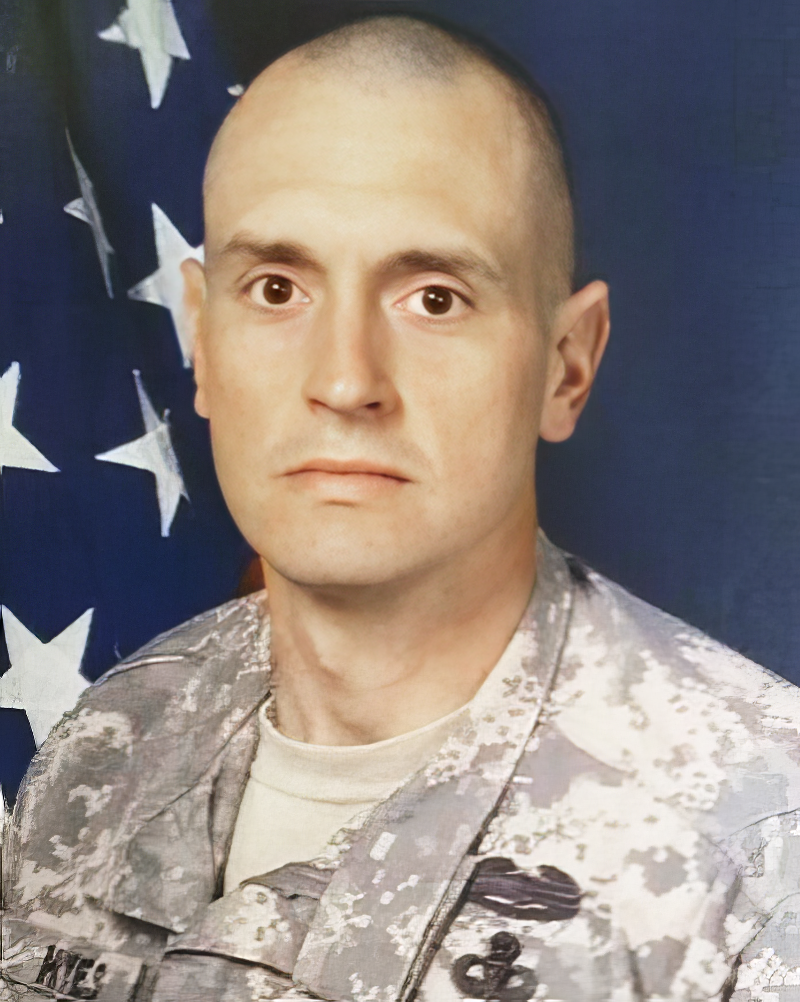
I have only found a few people I served with on TWS, but I have made great new friends on the forums.
PRESERVE YOUR OWN SERVICE MEMORIES!
Boot Camp, Units, Combat Operations
Join Togetherweserved.com to Create a Legacy of Your Service
U.S. Marine Corps, U.S. Navy, U.S. Air Force, U.S. Army, U.S. Coast Guard

0 Comments